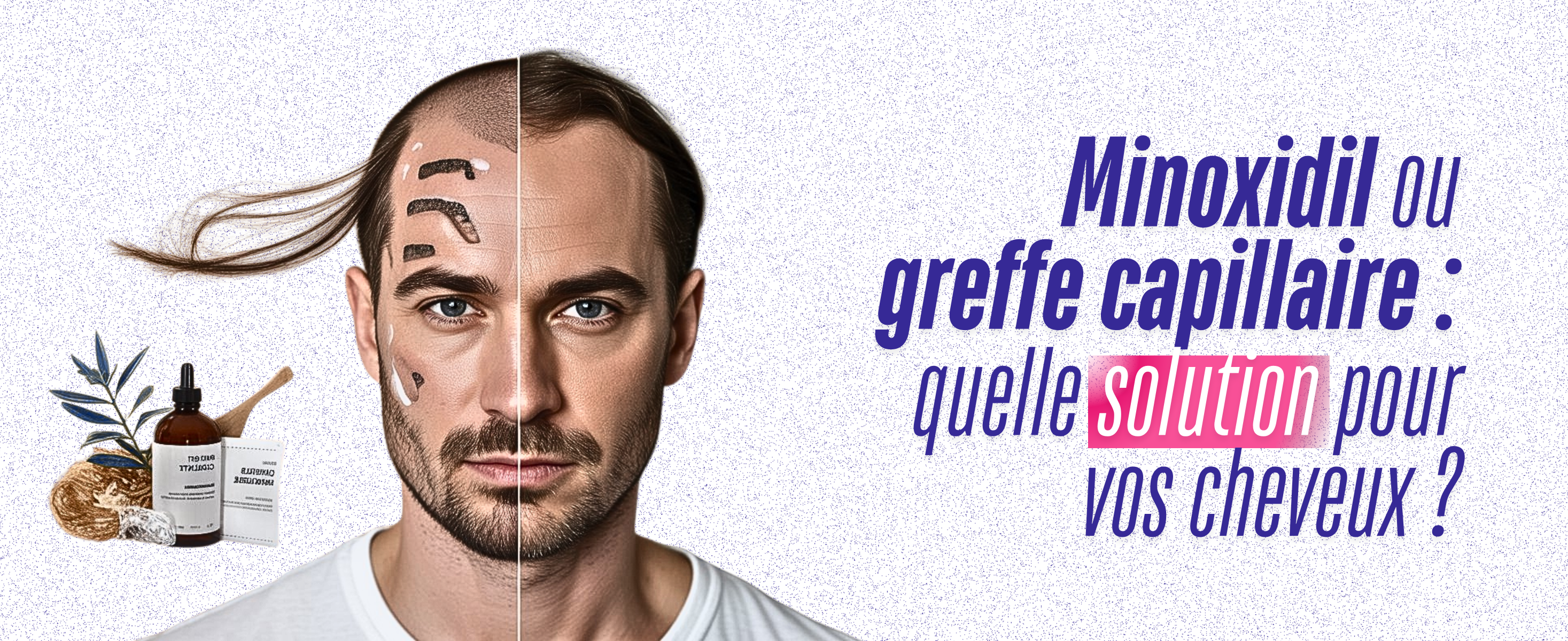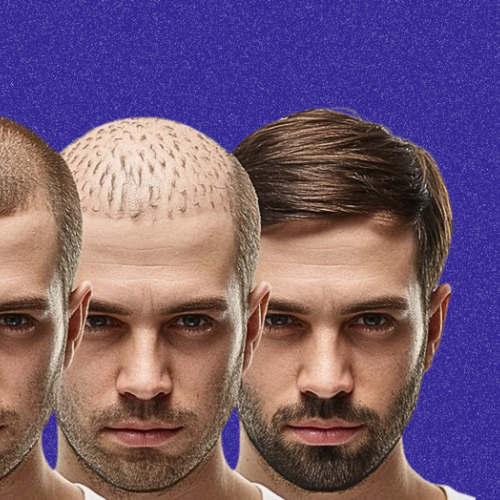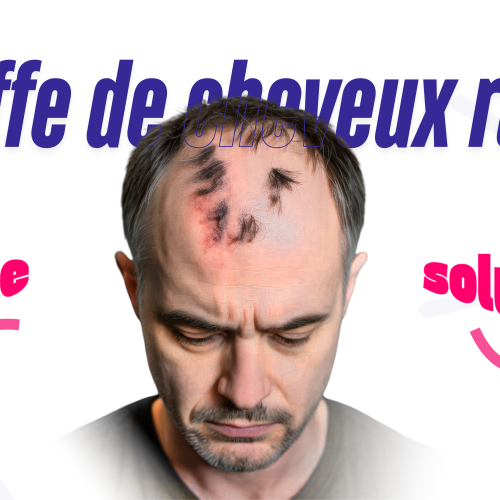
Alternatives to Minoxidil for Hair: Effective Transplantation ?
Hair loss is a common concern for many people. Minoxidil, often known as Rogaine, is a popular treatment. However, it doesn't work for everyone and has its limitations.
Some people experience side effects or find it ineffective. This leads them to seek alternatives.
Hair transplantation is one such alternative. It offers a more permanent solution to hair loss.
This article explores the pros and cons of hair transplantation. We'll compare it to minoxidil and other treatments.
By understanding these options, you can make an informed decision. Whether you're considering minoxidil or a hair transplant, knowing the facts is crucial.
Why look for alternatives to minoxidil?
Minoxidil is a common treatment for hair loss. However, it's not a perfect solution for everyone. Some people see little to no improvement after several months of use.
Beyond effectiveness, minoxidil can cause side effects. Scalp irritation and unwanted hair growth on the face or body are possible. These can be troublesome and discourage continued use.
Certain groups, like pregnant women or people with specific health conditions, may not use minoxidil safely. This limits its applicability for some individuals experiencing hair loss.
Additionally, results from minoxidil require continuous application. Once you stop using it, hair loss may resume. Such ongoing commitment can be challenging for many.
Reasons to consider alternatives include :
- Ineffectiveness for some individuals
- Potential side effects
- Restrictions on use
- Need for continuous application
With these factors in mind, exploring alternatives is wise. Options like hair transplantation or other non-pharmaceutical treatments can be beneficial.
The limits and side effects of minoxidil
Minoxidil is praised for its accessibility, but it has limitations. Its effectiveness varies among individuals, with some seeing minimal results. Continuity is key, as stopping can lead to resumed hair loss.
While generally safe, minoxidil carries potential side effects. Commonly, users report scalp irritation. Some experience dryness, itching, or redness after application, which can be uncomfortable.
Other side effects may include unwanted hair growth in non-target areas. For some, facial or body hair increases, which can be distressing. Severe reactions are rare but possible, including dizziness or irregular heartbeats.
Common side effects include :
- Scalp irritation
- Dryness and itching
- Unwanted hair growth
- Dizziness (rare)
Despite its convenience, these issues highlight the need for alternatives. Considering these factors, evaluating other options or consulting healthcare providers can be advantageous.
What are the alternatives to minoxidil for hair regrowth?
Several treatments exist for those seeking alternatives to minoxidil. Finasteride is commonly used, especially for male pattern baldness. It works by blocking the hormone responsible for hair loss.
Another option is laser therapy, a non-invasive treatment. It uses low-level lasers to stimulate hair follicles. Users often report improved thickness and growth over time.
Natural remedies are popular among those preferring holistic approaches. Essential oils like rosemary and peppermint show promise in promoting hair health. While results may vary, they offer a gentle alternative.
Diet and lifestyle changes also play a crucial role. Nutrients like biotin and zinc can boost hair growth. Reducing stress through mindfulness practices can complement these efforts.
Promising alternatives include :
- Finasteride
- Laser therapy
- Essential oils
- Nutrient-rich diet
These alternatives offer diverse pathways to enhance hair growth. They cater to different needs, from medical treatments to natural solutions. Evaluating individual responses and consulting professionals is essential for effective results.
Hair transplant: a permanent solution ?
Hair transplantation is often seen as a long-term solution to hair loss. Unlike temporary treatments, it offers lasting results. This surgical procedure involves moving hair follicles from a dense area to a balding one.
There are two main techniques used in hair transplantation. Follicular Unit Transplantation (FUT) involves removing a strip of skin with hair. Follicular Unit Extraction (FUE) takes individual follicles directly from the scalp.
The success of a hair transplant depends largely on the surgeon's skill. A natural-looking outcome can boost confidence and improve appearance. However, it's vital to choose a qualified professional for the best results.
Benefits of Hair Transplantation :
- Permanent Results : Provides a lifelong solution to hair loss.
- Natural Appearance : When performed by skilled surgeons, results are undetectable.
- High Satisfaction Rate : Most patients report positive outcomes.
Hair transplantation does require financial investment. Costs can vary, but the permanence often justifies the expense. For those who have not responded to minoxidil or other treatments, it offers a compelling option. Despite the surgical nature, most patients recover quickly and resume daily activities.
Comparison: minoxidil vs hair transplant
Comparing minoxidil with hair transplantation reveals distinct differences in approach and outcome. Minoxidil, often branded as Rogaine, is a topical treatment. It requires regular application to maintain hair growth effects.
Hair transplantation, on the other hand, offers a one-time solution. Once the procedure is done, the results are typically permanent. This can be an advantage for those seeking a lasting fix.
Key Differences :
- Duration : Minoxidil requires ongoing use; transplantation is a one-time treatment.
- Results : Transplantation offers permanent results; minoxidil's effect fades without continuous use.
- Application : Minoxidil is non-invasive; transplantation involves surgery.
The cost and commitment level also differ significantly. Minoxidil is more affordable initially but demands continuous purchase. Hair transplantation, while costlier upfront, can be more economical long-term.
Ultimately, the choice between minoxidil and transplantation hinges on individual needs. Patients should consider factors like budget, hair loss severity, and desired outcome. Consulting with a healthcare provider can guide the best decision.
Other treatments and tips to combat hair loss
Exploring additional treatments can provide more options for hair loss. Finasteride is another medication often used alongside minoxidil. It functions by inhibiting hormones linked to hair loss.
Natural remedies are also popular. Some people opt for essential oils like rosemary or peppermint to stimulate the scalp. These alternatives are generally safer and have fewer side effects.
Useful Tips :
- Maintain a balanced diet rich in vitamins.
- Practice good scalp hygiene.
- Limit the use of heat-styling tools.
Laser therapy offers another avenue. Low-level laser devices are used to invigorate hair follicles. This treatment can be done at home or in clinics, making it versatile. Adopting a holistic approach by combining several methods can yield the best results. Always consult with a professional before starting any new treatment.
Conclusion: How to choose the best solution ?
Choosing the right solution for hair loss depends on individual needs. Consider your budget, severity of hair loss, and personal preferences. Both minoxidil and hair transplantation have distinct advantages.
Consult with a healthcare professional for guidance tailored to your situation. Understanding the benefits and limitations of each treatment can aid in making an informed decision. Ultimately, patience and consistent treatment are key to achieving the desired results.
Alternatives to Minoxidil for Hair: Effective Transplantation ?
FAQ
Yes, minoxidil is generally safe for long-term use, but it must be applied continuously. Stopping treatment usually leads to resumed hair loss.
Absolutely. Many patients turn to hair transplantation after seeing limited results with minoxidil. It's best to consult with a hair restoration specialist for a smooth transition.
Most procedures are performed under local anesthesia and are minimally painful. Some discomfort may occur post-op but is manageable.
Recent posts



